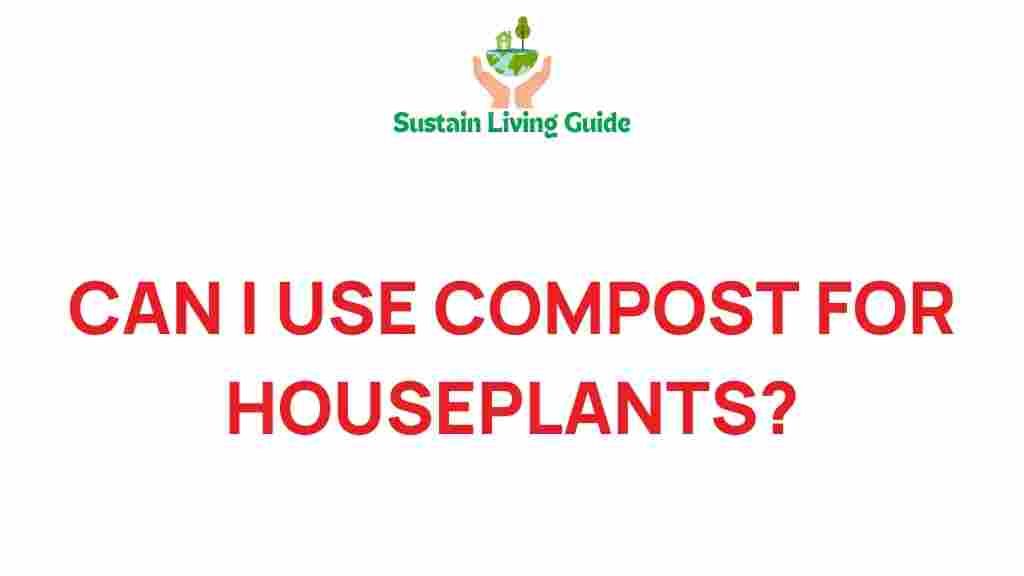The Surprising Benefits of Compost for Your Houseplants
If you’re a plant enthusiast, you’ve likely heard about the myriad benefits of using compost for your houseplants. Compost is not just a buzzword among gardeners; it’s a powerhouse of nutrients that can transform the health and growth of your indoor plants. In this article, we will explore the surprising benefits of compost, how to use it effectively, and some troubleshooting tips to ensure your houseplants thrive.
What is Compost?
Compost is a natural organic material that is created from the decomposition of plant and animal matter. It is often referred to as “black gold” due to its rich nutrient content. Compost provides a slow-release source of nutrients, improves soil structure, and enhances moisture retention. Using compost for your houseplants can lead to healthier, more vibrant plants.
Benefits of Using Compost for Houseplants
Using compost for your houseplants comes with a host of benefits that can significantly enhance their growth and health. Here are some of the most notable advantages:
- Rich Nutrient Source: Compost is packed with essential nutrients like nitrogen, phosphorus, and potassium, which are vital for plant growth.
- Improved Soil Structure: Compost helps improve soil aeration and drainage, allowing roots to grow more easily.
- Moisture Retention: Compost can retain moisture, reducing the frequency of watering and preventing drought stress on your plants.
- Enhanced Microbial Activity: Compost encourages beneficial microorganisms that help break down nutrients and improve soil health.
- pH Balance: Compost can help neutralize soil pH, creating a more favorable environment for houseplants.
How to Use Compost for Your Houseplants
Incorporating compost into your houseplant care routine is easy and rewarding. Follow these steps to maximize the benefits:
1. Choose the Right Compost
Not all compost is created equal. When selecting compost for your houseplants, look for:
- **Organic compost**: Ensure it is made from organic materials without synthetic additives.
- **Well-aged compost**: Fresh compost can be too hot and may harm your plants. Look for compost that has been decomposed for at least six months.
2. Mix Compost with Potting Soil
For optimal results, mix compost with your potting soil. A good ratio is:
- **1 part compost to 3 parts potting soil**
This blend provides the nutrients of compost while maintaining the structure and drainage properties of potting soil.
3. Top Dressing with Compost
Another effective way to use compost is as a top dressing. Simply sprinkle a layer of compost on top of the soil in your plant pots. This not only adds nutrients but also prevents weeds and helps retain moisture.
4. Compost Tea
You can also make compost tea, a nutrient-rich liquid fertilizer. Here’s how:
- Fill a bucket with water (preferably rainwater).
- Add a bag of compost (or a mesh sack) to the water.
- Let it steep for 24-48 hours.
- Strain the liquid and use it to water your plants.
When to Use Compost
Timing your compost application can significantly impact your houseplant’s health. Here are some tips:
- **Spring**: This is the best time to refresh your houseplants’ soil with compost as they enter their growing season.
- **Repotting**: When you repot your houseplants, mix compost into the new soil.
- **Fertilizing**: Use compost as a natural fertilizer during the growing season for sustained nutrient supply.
Troubleshooting Tips
While compost is beneficial, some common issues may arise. Here are troubleshooting tips to ensure your houseplants thrive:
1. Compost Smell
If your compost has a foul smell, it may be too wet or not aerated enough. Turn the compost pile or mix it with dry materials like leaves or straw to improve aeration.
2. Pests
Sometimes, compost can attract pests. To mitigate this:
- Ensure your compost is well-composted and free from food scraps that can attract insects.
- Use diatomaceous earth as a natural pest deterrent.
3. Over-Fertilization
Using too much compost can lead to nutrient burn. To avoid this, follow the recommended mixing ratios and only apply compost during appropriate times.
Conclusion
Incorporating compost into your houseplant care routine can lead to surprisingly beneficial results. From enhanced nutrient availability and improved soil structure to better moisture retention, compost acts as a natural booster for your indoor plants. By understanding how to use compost effectively and recognizing potential challenges, you can ensure your houseplants flourish.
So, whether you are a seasoned gardener or a newbie, don’t underestimate the power of compost! For more tips on houseplant care, check out our guide on plant maintenance.
For more information on composting techniques, visit this resource.
This article is in the category Eco-friendly and created by SustainLivingGuide Team
